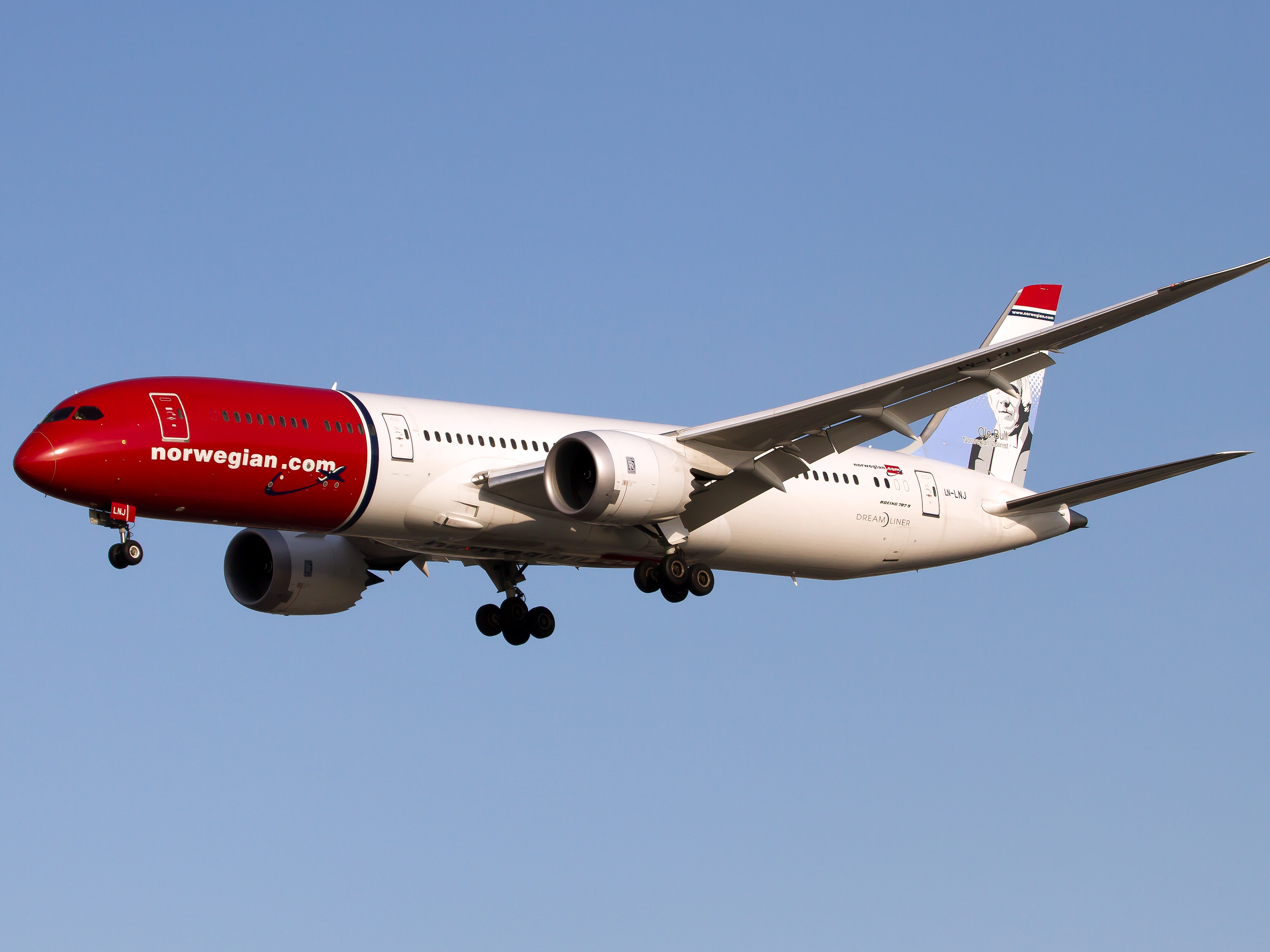- Norwegian Air is reducing its long-haul flying by 40% following President Trump’s restrictions on travel between Europe and the US.
- The low-cost airline’s business model makes it particularly vulnerable to the restrictions that limit which US airports can accept flights from most Continental European cities.
- With financial problems plaguing the airline before the start of the COVID-19 crisis, Norwegian may not survive much longer, according to an airline industry expert.
- Visit Business Insider’s homepage for more stories.
One of Europe’s leading low-cost, long-haul airlines announced that it will be suspending over 4,000 flights in response to President Trump’s proclamation that travel between the US and Europe will be restricted for the next 30 days.
Norwegian Air issued a statement Thursday afternoon detailing the specifics of its transatlantic scale back include canceling a majority of flights between the US and cities in Europe such as Amsterdam, Madrid, Oslo, Stockholm, Barcelona, Athens, Rome, and Paris. The cuts resulting in a 40% reduction of service in its long-haul network.
Unlike most European long-haul airlines, Norwegian had adopted a largely point-to-point business model for its transatlantic routes and isn’t tied to a single hub on the continent. The low-cost airline primarily serves routes between North America and Europe with strong demand, starting a low-cost revolution when it first launched by offering inexpensive nonstop flights aimed at leisure travelers.
With a large focus of its business focused on the Continental European destinations that are being restricted under the president’s proclamation, Norwegian is heavily at risk and may not survive the season.
At Denver International Airport, for example, Norwegian serves Paris and was scheduled to begin service to Rome at the end of the month. Both routes will be forcibly suspended under the travel restrictions because the airport isn't listed as an approved entry airport.
In conversation with Business Insider, airline industry consultant Henry Harteveldtincluded Norwegian on his list of airlines that may not survive the drastic reduction in demand airlines are seeing as a result of the spread of COVID-19. Norwegian is particularly vulnerable as it had financial issues before the crisis began.
"Norwegian has a relatively week balance sheet," Harteveldt said.

Norwegian's financial issues stem from a series of unfortunate events that have plagued Norwegian since its debut in the transatlantic market. President Trump's announcement is just the latest in a line of situations outside of Norwegian's control that may lead to its demise.
The first hiccup for the red-nose airline occurred when it was forced to ground its Boeing 787 Dreamliner fleet, the backbone of its transatlantic strategy, due to battery and wiring issues with the next-generation aircraft.

The Dreamliner, though offering Norwegian increased efficiency that enabled it to increase margins despite offering low fares, would continue to haunt the airline as the Rolls-Royce Trent 1000 engines powering the aircraft would experience issues as well.
The result has been Norwegian being forced to ground its 787s for extended periods to resolve the engine issues and wet-lease older, inefficient aircraft from other airlines instead. Aging aircraft such as the Airbus A340 and Boeing 747 were frequently used and detrimentally impacted Norwegian's image to its passengers.
The latest hiccup came following the worldwide grounding of the Boeing 737 Max aircraft, for which Norwegian had high hopes to use for a fleet renewal and further transatlantic expansion.

The next-generation narrow-bodies were deployed on long, thin routes to secondary cities on both sides of the Atlantic under the brand Norwegian Air International.
Once the Max aircraft were grounded, the entire network was soon shuttered and Norwegian's plans to replace its intra-European fleet with the aircraft were put on hold indefinitely.
Despite the hiccups, Norwegian has been steadily expanding across the United States including to secondary markets such as Denver, Austin, and Seattle, but the airline may have spread itself too thin and the current downturn may see the demise of the airline.
Norwegian has one saving grace, according to Harteveldt, and that is its base at London's Gatwick Airport, currently unrestricted by the US government.

From London, Norwegian can continue operating flights to any US city and may experience an uptick in bookings as US citizens flock to return home amid the uncertainty of future travel restrictions and border closures. The airline stated it intends to route passengers through the London hub as much as possible.
Whether that one base is enough to keep the airline afloat remains to be seen.
The airline will also be temporarily laying off 50% of its staff across all departments in order to preserve cash flow and try to stay in the fight a little bit longer.

